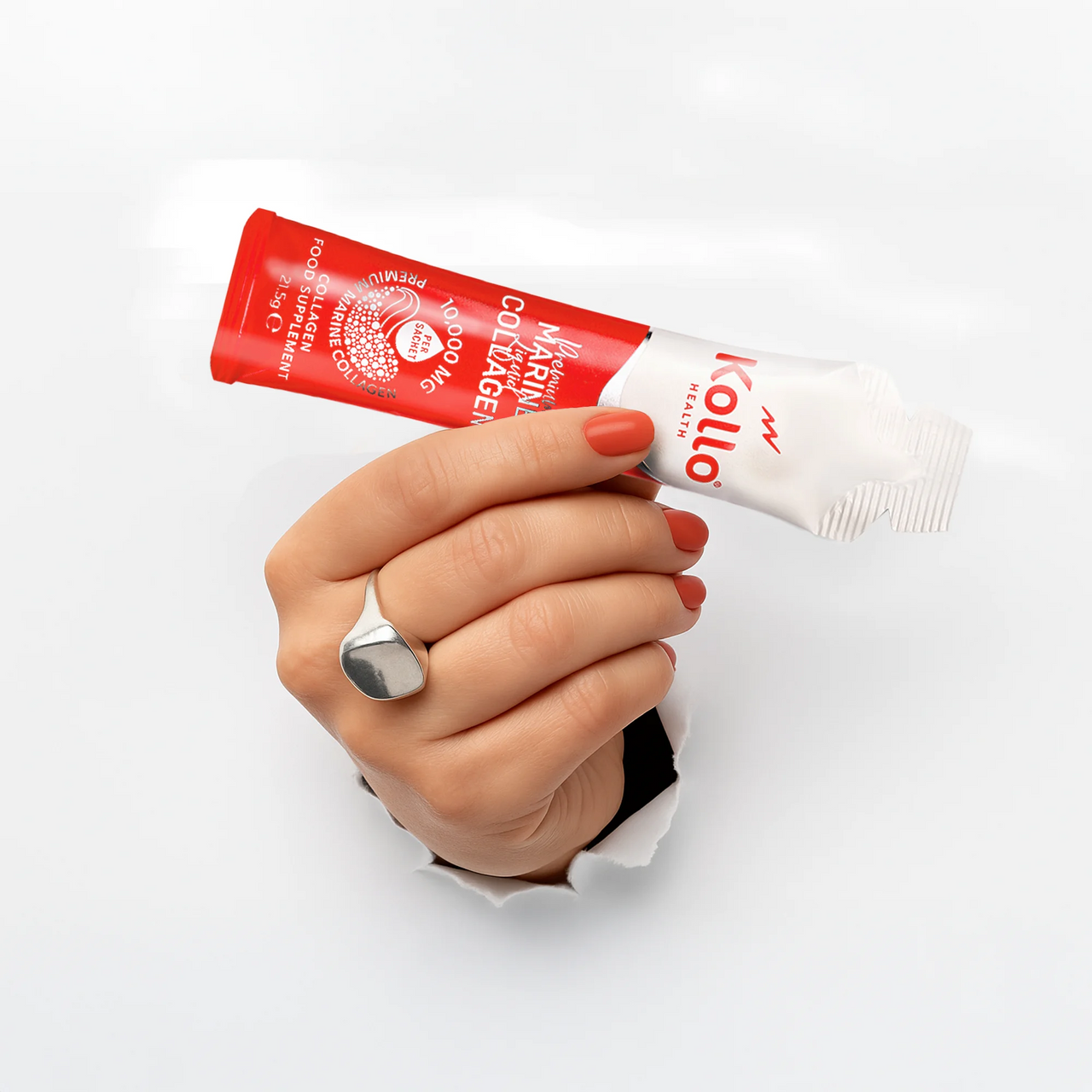Collagen is seen as somewhat of a miracle supplement and with good reason. Collagen has several benefits for your health, both externally and internally. Collagen supplements – whether they be pills, powder, a collagen drink, or an additive in skincare products – can do anything from improving skin elasticity to easing joint pain.
Our natural collagen production slows as we age. Collagen makes up a significant proportion of the proteins in our body, hair, teeth, nails and bones. Currently, medical experts estimate that our collagen production decreases by about 1% year-on-year once we hit our twenties. Therefore, taking a collagen supplement, such as liquid collagen or collagen capsules, can top up your collagen reserves as we age.
However, as many dieticians and nutritionists advise, it is often possible to get too much of a good thing. For instance, in some cases, doctors and nutritional experts will advise that we limit our intake of a certain supplement. So what about collagen? Are there any downsides and can you take too much collagen?
Is it possible to have too much collagen?
The short answer to this question is no, it's not possible to take too much collagen. Of course, nutritionists suggest a daily dosage and generally, most dieticians and the best collagen supplement manufacturers will advise that you don't consume more than 30 milligrams a day, with most suggesting between 12–15mg. However, going over this recommended daily amount won't do you any harm.
What makes collagen different from other vitamins and supplements is that our bodies produce collagen naturally, so it's not something foreign that our cells can't process. There are different types of collagen – for instance, if you take fitness supplements you may have come across collagen type 2, which supports soft tissue repair – but essentially, collagen is chains of amino acids that naturally occur in our bodies to support the health of our skin, hair, and nails.
Are there any side effects of taking collagen?
Currently, there are no known side effects of consuming additional collagen. However, there are some exceptions to be aware of. It is possible to have a collagen allergy, or indeed, an allergy to ingredients in various healthy drinks or supplements. Before purchasing your collagen product – whether it be collagen for face, collagen for hair, or a dietary supplement – make sure you check the label thoroughly.
Equally, some people with sensitive stomachs might experience some discomfort while taking a high-dosage collagen product. However, this is uncommon. Either way, always look for reputable products that contain organic, grass-fed animal collagen or wild-caught marine collagen. Also, check the label for any unnecessary additives like sugar or artificial flavouring. With high-quality, clean ingredients, you can be confident you're getting the maximum benefits from your collagen supplement.
Get the full benefits from your collagen products
One of the best things about collagen is that it's entirely safe and natural. There are no known negative side effects of taking collagen and very few people will experience any downsides. Of course, everyone's body is different and people will see the benefits at different times, depending on why you're taking supplements. For instance, if you're taking collagen for joint pain or bone health, it's possible you'll see more benefits over a longer period than someone that's taking collagen to enhance the glow of their skin.
Health and beauty experts all agree: introducing collagen into your diet or skincare routine has a whole range of benefits. Extra collagen for skin, hair, nails, bones, and muscles can aid in keeping your skin soft and supple, your hair and nails strong, and promote soft tissue repair. Unlike other vitamins, our bodies produce collagen naturally – so there's no harm in taking a clean, organic supplement to give your body a helping hand.







